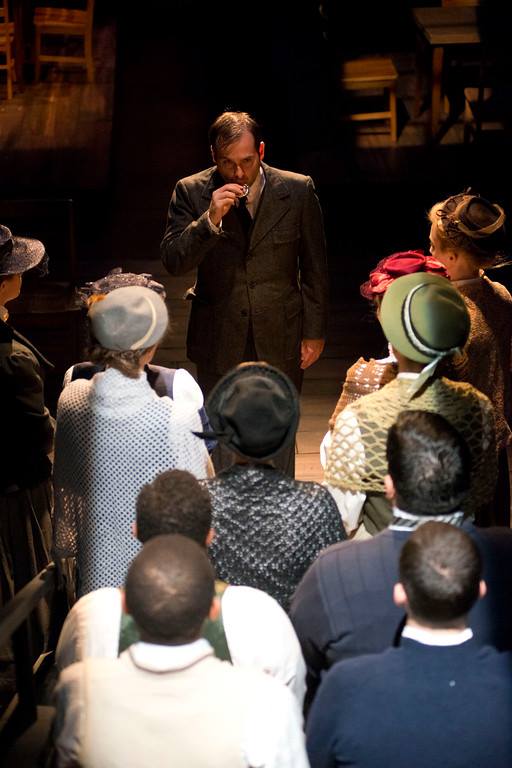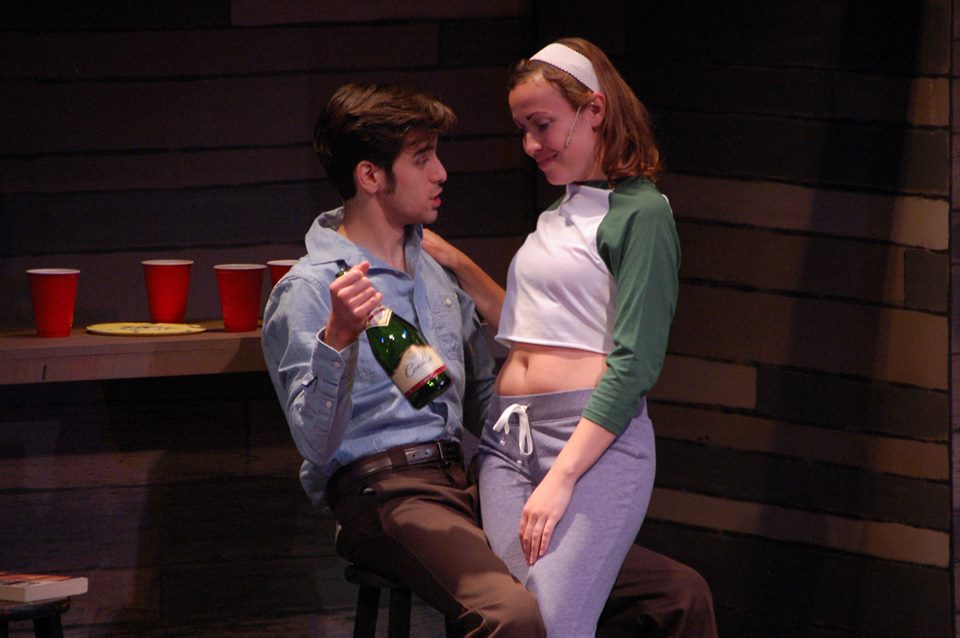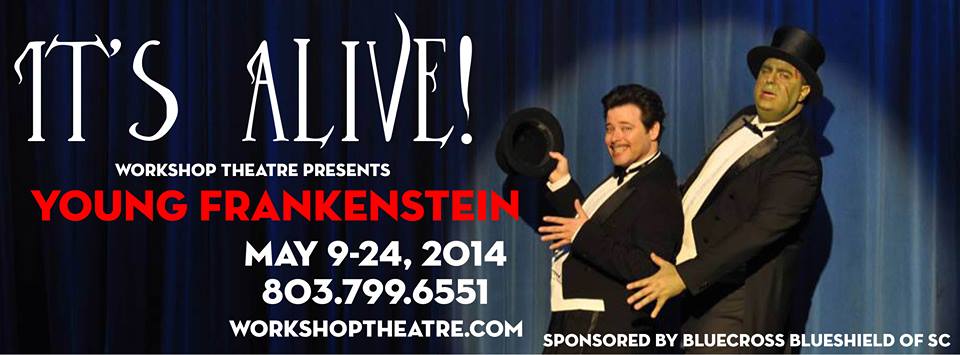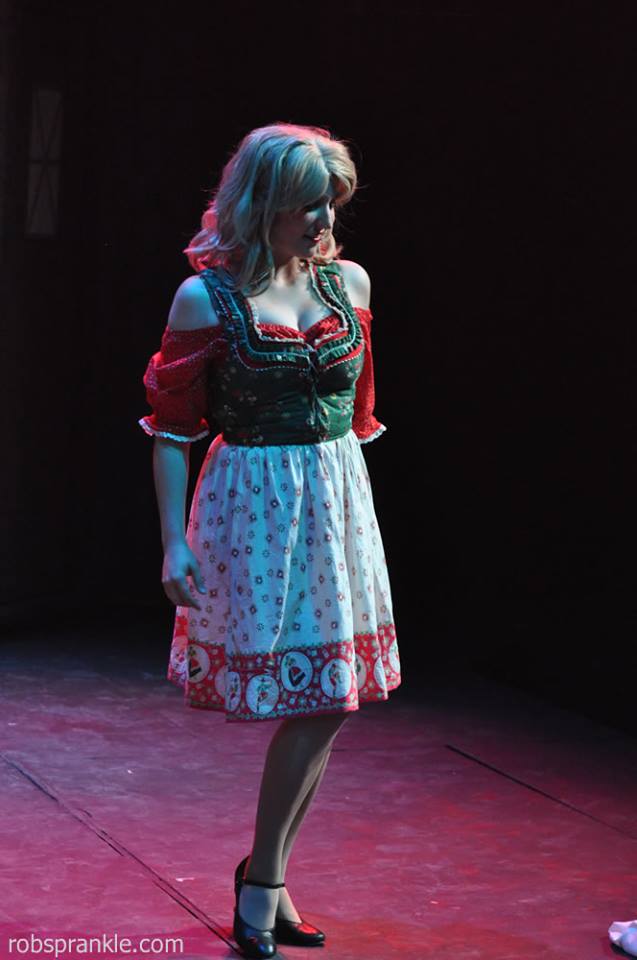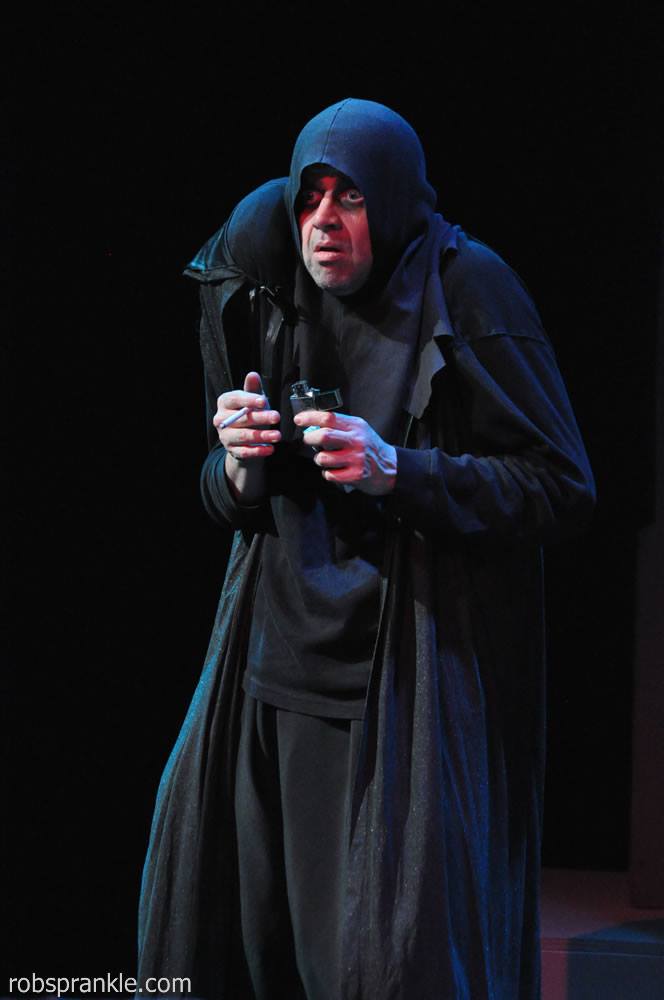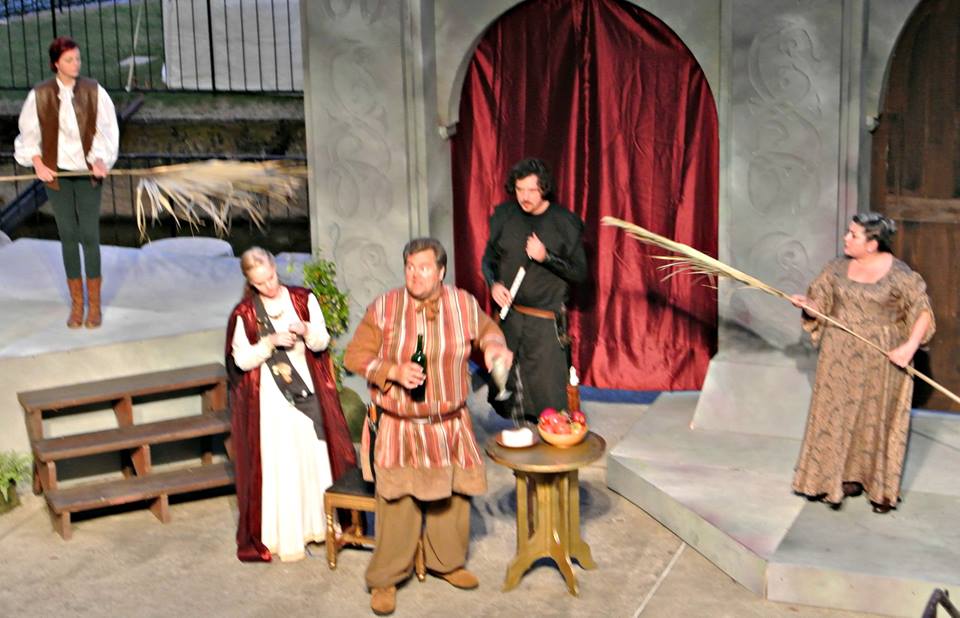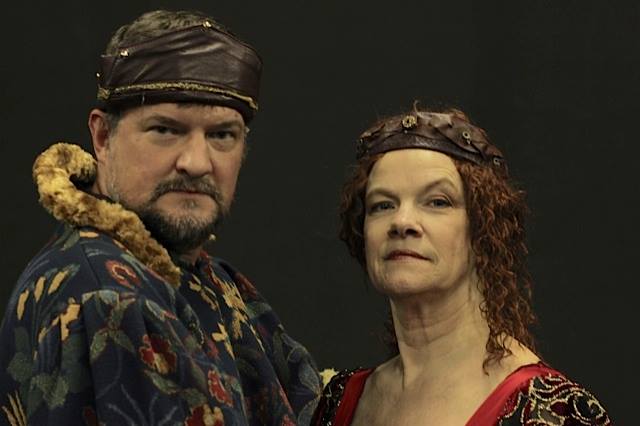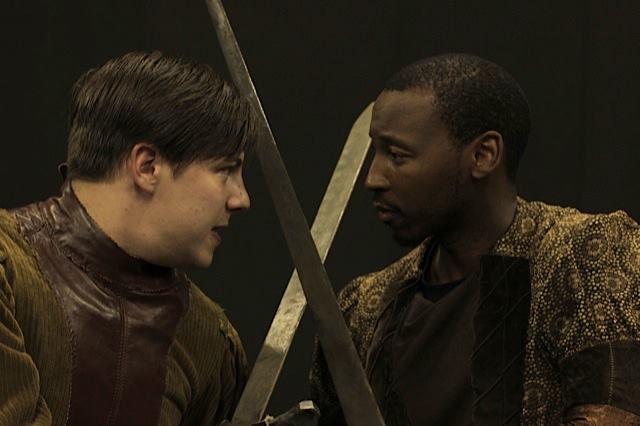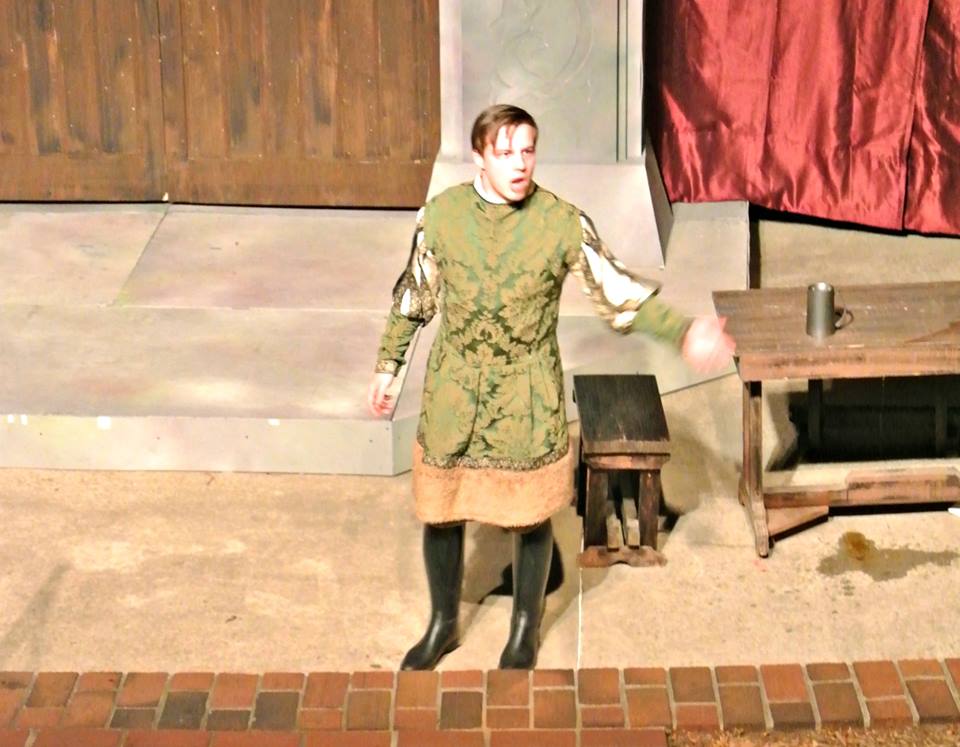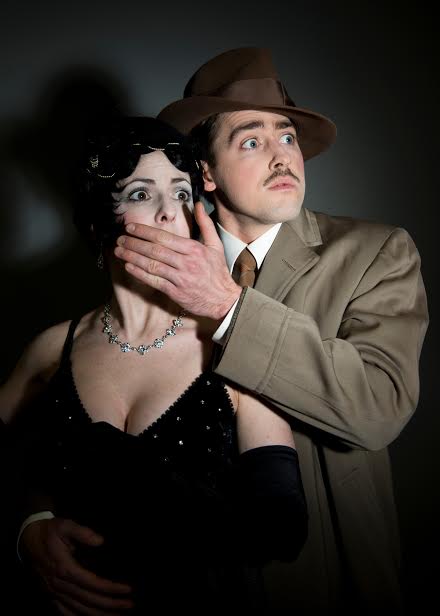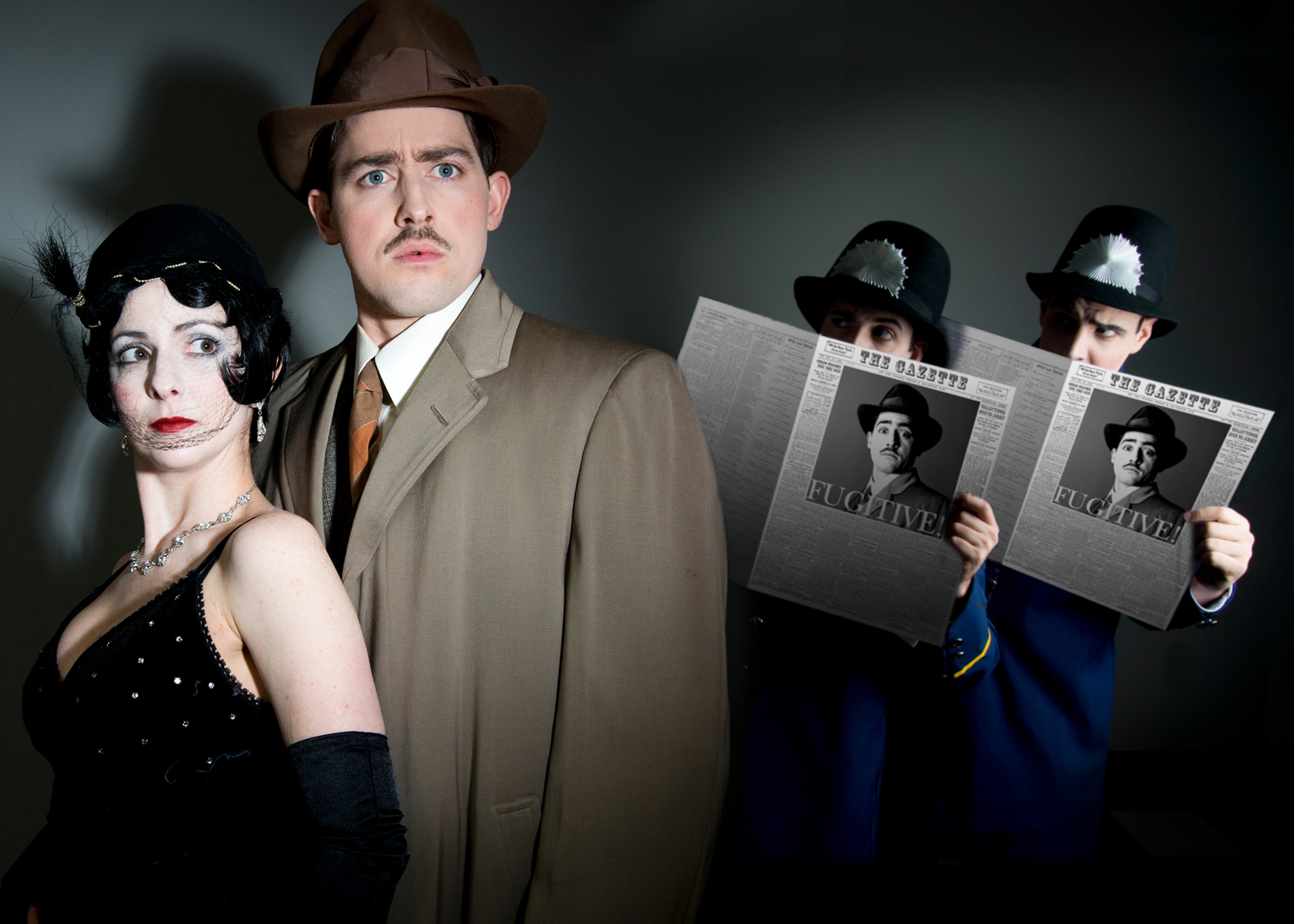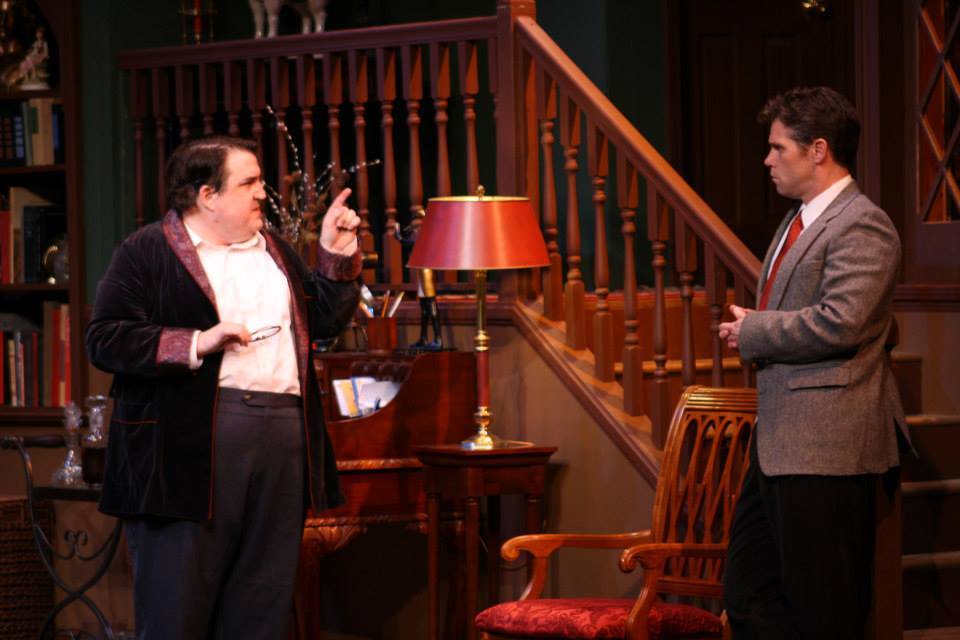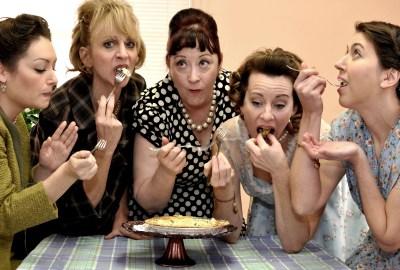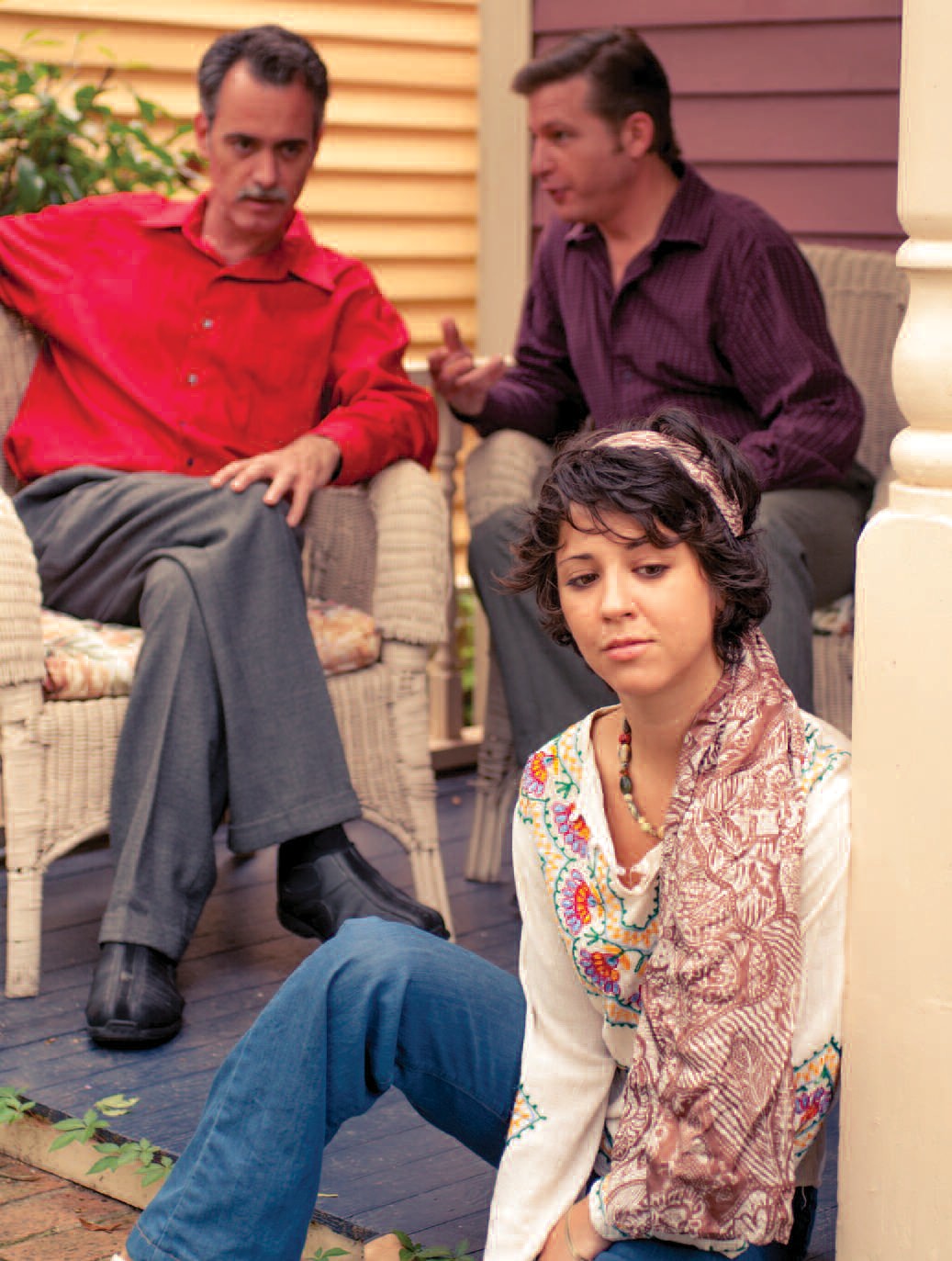
The University of South Carolina’s second production of the 2014-15 academic year isn’t the most adventurous of choices, but it is a popular one. Often-produced, Thornton Wilder’s Our Town (directed by Steven Pearson in USC's Longstreet Theatre) tells the simple story of a simple town full of simple people, but also tackles themes as heavy as why no one seems to appreciate life while they’re living it, and the meaning of eternity.
One of the reasons this play is so -- in my opinion -- over-performed is that it’s easy to produce. The script dictates that no props or sets be used. The actors must instead mime all action. Ladders become the second floors of houses where characters exchange secrets, and there are a few tables and chairs. That’s it. No real budget is required. Another reason this play is often-produced is that it’s extremely popular. It won the Pulitzer Prize for Drama in 1938, and its 1989 Broadway revival garnered a Tony and a Drama Desk Award for Best Revival.
Our Town is divided into three acts: Daily Life, Love and Marriage, and Death and Dying. The play opens in the tiny town of Grover’s Corners, New Hampshire in 1901. An equally omniscient and nostalgic Stage Manager (Carin Bendas) introduces us to several of the townsfolk and explains the town’s not-very-exciting history. We see the Gibbs and Webb families sending their children off to school. It’s all a bit tedious, and it’s meant to be. We meet the two teenagers, George Gibbs (Matthew Cavender) and Emily Webb (Nicole Dietze.) Much like the town of Grover’s Corners, there’s nothing really remarkable about either of them. We begin to see them fall in love. We see them marry. Nothing remarkable.
The third act poses an intriguing question: If you were dead and could go back to any day in your life, what would it be, and how would your perspective change? If youth is wasted on the young, is life wasted on the living? Do any of us really appreciate life while we’re in the moments that stack upon other moments until it’s all over? According to the Stage Manager, "No. Saints and poets maybe...they do some.”
Most of it is frightfully simple and boring, as are most of our lives. And that’s kind of the point. If Our Town wasn’t written in this simplistic style and with so few things that actually happen, we wouldn’t be as able to empathize with the characters as we are. We can see ourselves in them...not in those exciting, electric moments that we wait for, but in the spaces in between when we’re cooking dinner, running errands, or just chatting with a friend. This is who we are.
This production of Our Town features a new crop of MFA students, as well as a few undergrads. Dietze and Cavender are naively pleasant enough as Emily and George. I enjoyed the easy and comfortable dynamic between Dr. and Mrs. Gibbs (Josh Jeffers and Candace Thomas), which was perhaps the most subtly touching and believable relationship in this production. The Stage Manager is usually cast as a male, but features a female actor, Carin Bendas, in this production. It’s a difficult role, as it isn’t really so much a character as it is a time-warping deliverer of exposition. Bendas comes off as off-puttingly smug at times, but still delivers some of the best lines of the show with empathy and compassion. All of the actors do an impressive job at miming props, and manage to deliver decent New Hampshire accents.
I was impressed by how visually interesting the “not really a set” set was. Neda Spalajkovic adhered to Wilder’s desires as much as she could, while still giving the audience something interesting to look at that establishes location and time changes. And even if you don’t care very much for this sort of show, you’ll be impressed with how she has worked with lighting designer Ashley Pittman to create a visually stunning final tableau.
The plot is slow. The language is plain. But then you get lines like this that jump out at you and stir something inside of you:
“We all know that something is eternal. And it ain’t houses and it ain’t names, and it ain’t earth, and it ain’t even the stars . . . everybody knows in their bones that something is eternal, and that something has to do with human beings. All the greatest people ever lived have been telling us that for five thousand years and yet you’d be surprised how people are always losing hold of it. There’s something way down deep that’s eternal about every human being.”
And this is why Our Town remains an American theatre classic.
~ Jillian Owens
Show times for Our Town are 8pm Wednesdays through Saturdays, with additional 3pm matinees on Sunday, November 16 and Saturday, November 22. Tickets for the production are $12 for students, $16 for USC faculty/staff, military personnel and seniors 60+, and $18 for the general public. Tickets can be purchased by calling 803-777-2551 or by visiting the Longstreet Theatre box office, which is open Monday-Friday, 12:30pm-5:30pm, beginning Friday, November 7. Longstreet Theatre is located at 1300 Greene St.




